
Mœnia is a Mexican electronic/synthpop/ambient group. Popular within the Latin club scene while simultaneously pioneering a darker, more experimental, more poetic side of Spanish-language electronica, Mœnia has had three top-20 hits. Mœnia is often considered one of the first successful experimental Mexican music composers and performers, finding commercial viability in a market normally dominated by Latin ballad crooners, teenage vocal groups and musical styles with more mass appeal like cumbia, reggaeton and ranchera. Mœnia is also popular in other parts of Latin America, including the Argentinian and Chilean music markets, where they have also charted. Some of their most recognized singles include "Estabas Ahí", "No Dices Más" and "Manto Estelar".

Live & off the Record is the second live album by Colombian singer and songwriter Shakira. The album was released in 2004, consisting of a two-disc CD and DVD compilation. The CD includes recordings of live performances recorded during 2003 and 2004, and the DVD includes footage from Shakira's Tour of the Mongoose live performance in Rotterdam, Netherlands on 22 April 2003. The album was certified gold by the RIAA in May 2004. It was number one on the US Top Music Videos chart on 17 April 2004.

Canciones de mi padre is American singer Linda Ronstadt's first album of Mexican traditional Mariachi music.
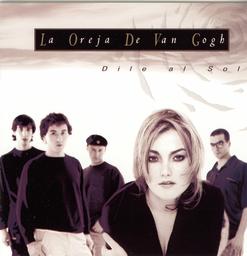
Dile al sol is the debut album from Spanish pop rock band La Oreja de Van Gogh released by Sony Music Entertainment in May 1998. The album was very successful in Spain, selling more than 800,000 copies there.
Morbo was a Mexican electronic/synthpop/ambient/alternative rock group formed by Juan Carlos Lozano. Lozano was one of the four founding members of Mœnia, which originally included Juan Carlos Lozano as lead guitarist on their failed 1992 debut album Moenia, later on as lead vocalist on their official eponymous 1996 debut Mœnia and its 1998 companion remix album Mœnia Mixes. Despite the acclaimed success at the time in a risky and previously unnoticed novelty in the Mexican music industry, and due to disagreements between Lozano, Jorge Soto and Alejandro 'Midi' Ortega as to the creative route Mœnia should take, Lozano decided to leave Mœnia as vocalist with original founding member Alfonso Pichardo returning as lead singer. Lozano then formed the perhaps less commercial, still synth-oriented, but more guitar-centered Morbo, whose musical vision first came to fruition in 2001's eponymous Morbo.

Bueninvento ("Goodinvention") is an album released by Mexican singer-songwriter and instrumentalist Julieta Venegas in 2000 to critical acclaim. "Sería Feliz" was the single released for this album, accompanied by a video that received rotation on music TV channels. The album was nominated for Latin Grammy Award for Best Rock Solo Vocal Album. In addition, Bueninvento was named the 4th best album of the 2000s decade by Latin music website Club Fonograma. In 2012, Rolling Stone ranked Bueninvento third in its list of "The 10 Greatest Latin Rock Albums of All Time."
Los Dynamite are a Mexican indie rock band based in Mexico City. Most of their songs are written in English.

Chenoa is the debut album from Spanish artist Chenoa, recorded in Miami, Madrid, London, Bratislava and Milan at the months of March and April 2002, after she left the Operación Triunfo academy as the fourth finalist.
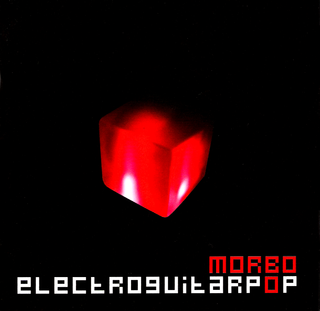
Electroguitarpop is the second studio album by the electronic band Morbo. It was released in 2005 on Phoenix.

Los Lobos del Este de Los Angeles is the debut album by the American band Los Lobos, at the time known as Los Lobos del Este de Los Angeles. It was self-released by the band in early 1978 and features mostly traditional Mexican folk music. The album was recorded live to 16-track and represented the band's live repertoire at the time, which included their original song, "Flor de Huevo", an instrumental written by guitarist David Hidalgo. It was reissued on CD in 2000 by Hollywood Records with one bonus track.
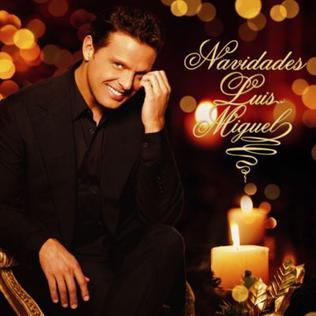
Navidades (transl. Christmas) is the 17th studio album by Mexican singer Luis Miguel, which Warner Music Latina released on 14 November 2006. It is Miguel's first Christmas album, and features Spanish-language adaptations of English-language songs and carols consisting of big band numbers and string-laden ballads. Édgar Cortázar and Juan Carlos Calderón adapted the songs and Miguel produced the album. To promote Navidades, "Mi Humilde Oración" and "Santa Claus Llegó a la Ciudad" were simultaneously released as lead singles, and Luis Miguel performed two tracks from the album on the set list on the third leg of his México En La Piel Tour (2005–07) in November and December 2006.

Talento de Barrio is the soundtrack album to the film of the same name and the fifth studio album starring Puerto Rican reggaeton singer-songwriter Daddy Yankee, who also performs the songs on the album. It was released on August 12, 2008, by Machete Music and El Cartel Records, to accompany the motion picture Talento de Barrio. The album was mainly produced by reggaeton producers Eli El Musicólogo and Menes. The album production explores reggaeton with elements of tropical music such as merengue and dancehall along with EDM and electropop sounds. It receive positive reviews and was nominated for Best Urban Album at the 10th Annual Latin Grammy Awards. The album was supported by four official singles: "Somos de Calle", "Pose", "Llamado de Emergencia", and "Que Tengo Que Hacer?".

Olé is the ninth studio album by Spanish duo Azúcar Moreno, released on Sony International in 1998.
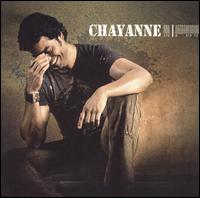
Cautivo is the 12th studio album recorded by Puerto Rican-American recording artist Chayanne. The album witch released by Sony BMG Norte on September 27, 2005. This album became his third number-one set on the Billboard Top Latin Albums, and includes the singles "No Te Preocupes Por Mí", "Te Echo de Menos" and "No Sé Por Qué".
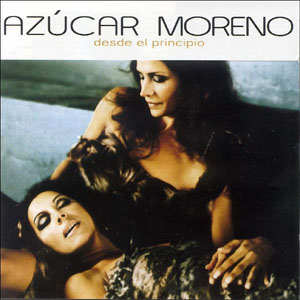
Desde El Principio is the twelfth studio album by Spanish duo Azúcar Moreno, released on Sony International in 2004.

7752 is the third album by Italian jazz vocalist Chiara Civello. The title gives the distance in kilometers from New York City to Rio de Janeiro, the two cities that inspired the album.

Alma Ranchera is the title of the last studio album released by Spanish singer Rocío Dúrcal on 14 September 2004 by BMG and RCA. Produced by Memo Gil and Carlos Cabral "Junior", the album is a tribute to ranchera music.

Lunas Rotas is the debut album of Spanish singer and composer Rosana Arbelo.
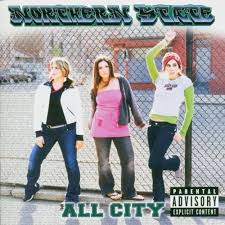
All City is the second full-length album by New York City-based hip hop group Northern State, released on August 17, 2004 on Columbia Records. It is also their major-label debut, as it was their first album released for Columbia. It has also been described as their first "real record", because some do not consider their debut album Dying in Stereo to be a full-length album, but an EP. The album's first single was "Girl for All Seasons", for which a music video was made at the Siberia club in New York City.

Piel a Piel is the second studio album by Spanish singer Marcos Llunas, released in 1994 by PolyGram Latino. The album was produced and mainly written by Spanish singer-songwriter Juan Carlos Calderón, and was promoted by its lead singles "Guapa", "Mañana" and "La de Siempre". The album sold 80,000 copies in Mexico in 1994

















